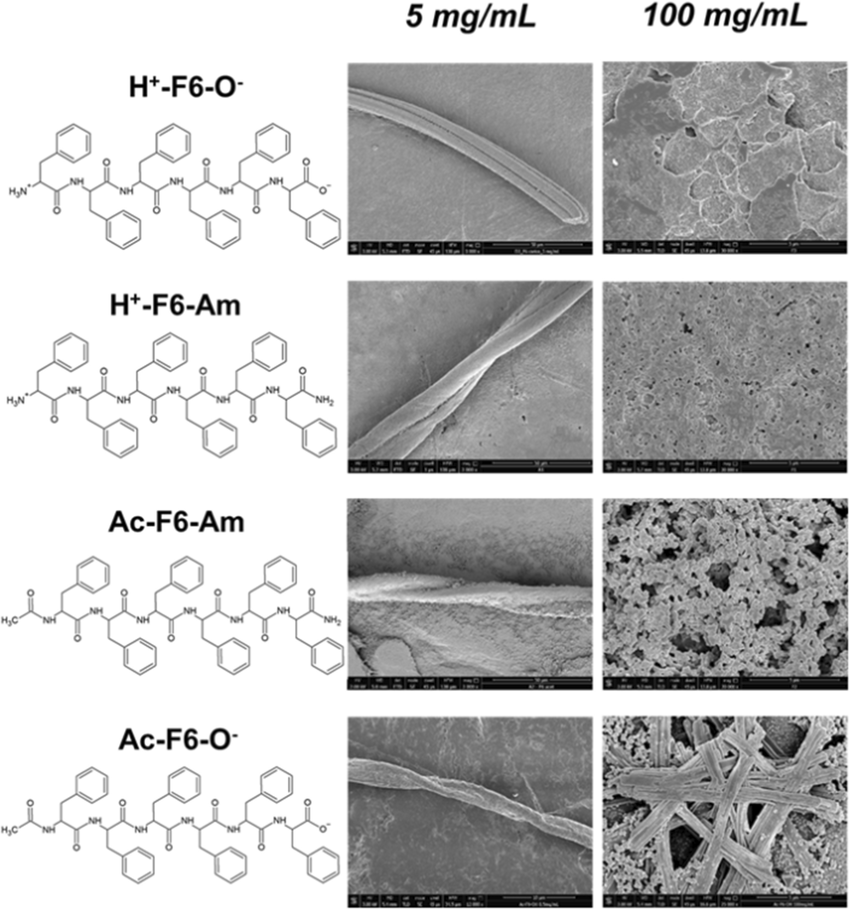Peptide Variants Characterization Service
- Disease Mechanism Research: Identify disease-specific peptide variants to investigate the expression and regulatory mechanisms of mutations or modifications under pathological conditions.
- Biomarker Discovery: Discover variant peptides that may serve as indicators for early diagnosis, prognosis prediction, or therapeutic response assessment.
- Personalized Medicine and Precision Diagnostics: Integrate with genotype information to explore peptide variant expression profiles associated with individual differences, drug response, or immune characteristics.
- Protein Degradation and Degradome Monitoring: Analyze peptide products related to endogenous protein degradation pathways to better understand proteolytic mechanisms.
- Peptide Drug Quality Control: Assess potential mutations or modification-derived isomers in synthetic or recombinant peptide production systems.
Peptide Variants Characterization Service is designed to identify, characterize and annotate various forms of peptide variants, and analyze their origins, structural characteristics, expression differences and potential functions. This service enables researchers to systematically acquire information on the types, abundances, and biological relevance of peptide variants present in samples, providing critical data support for mechanism studies, personalized therapeutic strategy development, biomarker discovery, and drug quality control.
In biological systems, endogenous peptides not only mediate signal regulation and physiological responses, but even subtle variations in their sequences, structures, or modification states are often closely linked to disease progression, drug response, and protein degradation. Peptide variants refer to peptides that exhibit alterations in sequence, mass, or structure due to factors such as single amino acid variants, splice isoforms, post-translational modifications (PTMs), or alternative enzymatic cleavage. These variants may differ significantly from the original peptides in function, making their precise identification and characterization highly valuable for mechanistic research, target validation, and biomarker development.

Schiattarella C. et al. Sci Rep. 2022.
Figure 1. Schematic representation of F6-peptide variants.
Services at MtoZ Biolabs
MtoZ Biolabs offers Peptide Variants Characterization Service aimed at the systematic identification and analysis of peptide variants arising from sequence mutations, splice isoforms, or post-translational modifications. Powered by high-resolution mass spectrometry and advanced structural analysis technologies, this service not only focuses on sequence variation but also investigates modification patterns, spatial conformation, and differential expression. It provides strong technical support for mechanism studies, biomarker discovery, and biopharmaceutical quality control. The main service components at MtoZ Biolabs include:
Peptide Variant Identification
Accurately identifies peptide variants resulting from single amino acid substitutions, splicing alterations, and other sequence changes using high-resolution LC-MS/MS platforms.
Post-Translational Modification Detection
Systematically analyzes post-translational modifications on peptide variants, including but not limited to phosphorylation, acetylation, methylation, and glycosylation.
Structural Feature Analysis
Characterizes conformational features of peptide variants using techniques such as nuclear magnetic resonance (NMR).
Quantitative Analysis
Utilizes both labeled and label-free strategies to precisely quantify the abundance of peptide variants across different conditions, sample types, or treatment groups.
Service Advantages
1. Advanced Analysis Platform: MtoZ Biolabs established an advanced Peptide Variants Characterization Service platform, guaranteeing reliable, fast, and highly accurate analysis service.
2. One-Time-Charge: Our pricing is transparent, no hidden fees or additional costs.
3. High-Data-Quality: Deep data coverage with strict data quality control. AI-powered bioinformatics platform integrates all Peptide Variants Characterization data, providing clients with a comprehensive data report.
4. Support for Multiple Types of Peptide Variant Identification: Identification is not limited to amino acid substitution variants, it also includes post-translational modifications, stop codon variations, and enzymatic cleavage site isoforms.
5. Integrated Structural and Functional Analysis: Combining NMR and X-ray crystallography, we provide spatial structure characterization of key peptide variants to support functional inference.
Sample Submission Suggestions
Sample Types: Accepts samples such as cells, tissues, body fluids, and synthetic peptide mixtures.
Storage and Transportation: Store at low temperatures (−20°C or −80°C). Dry ice transportation is recommended to avoid repeated freeze-thaw cycles.
Additional Notes: We recommend contacting us prior to sample submission for detailed and tailored sample preparation guidelines.
Applications
Examples of applications for Peptide Variants Characterization Service:
Deliverables
1. Comprehensive Experimental Details
2. Materials, Instruments, and Methods
3. Total Ion Chromatogram & Quality Control Assessment (project-dependent)
4. Data Analysis, Preprocessing, and Estimation (project-dependent)
5. Bioinformatics Analysis
6. Raw Data Files
Related Services
Qualitative Peptidomics Service
How to order?







